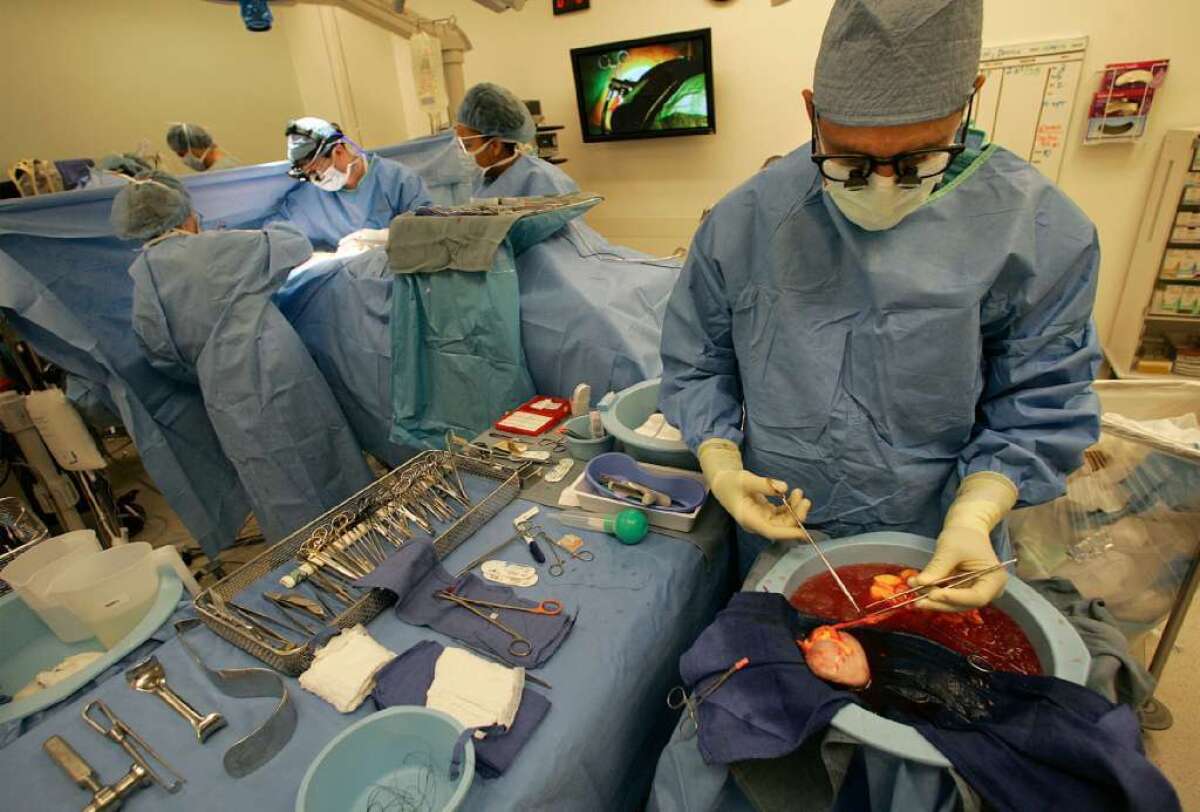Organ donors gave more than 2 million years of life to sick patients

Hearts, kidneys and other donated organs have added more than 2 million years to the lives of the American patients who received them, according to a new analysis.
That tally, published this week by the journal JAMA Surgery, covers 25 years of organ donation in the U.S. Researchers started with 1987, the year when the United Network for Organ Sharing began keeping track of all organ transplants in the U.S.
Between Sept. 1, 1987, and Dec. 31, 2012, 533,329 patients received a donated organ (or perhaps two). Another 579,506 patients were put on the UNOS waiting list but didn’t get an organ. By comparing the outcomes for patients in both groups, the researchers were able to calculate how much longer the transplant recipients lived as a result of their new organs.
So far, that number adds up to 2,270,859 years – a “stellar accomplishment,” according to the study authors. And that number will keep on getting bigger as long as any of the transplant recipients are still alive.
More than half of those extra years – 1,372,969 of them – have been lived by people who had kidney transplants, the researchers calculated. Another 465,296 extra years have been lived by recipients of new livers, and 269,715 years have been lived by people who got new hearts. The other beneficiaries included people who received new lungs (64,575 extra years), a new pancreas (14,903 extra years), a pancreas and a kidney (79,198 extra years) and intestines (4,402 extra years).
The analysis does not include patients who had rare kinds of transplants, such as heart-pancreas transplants and liver-lung transplants, because there were too few of these procedures to be able to make good comparisons with patients who needed such transplants but didn’t get them.
The researchers also calculated the number of years gained per patient, based on the type of transplant they received. By this measure, heart transplants were the most successful, giving patients an extra 4.9 years, on average. Patients who had a combined pancreas-kidney transplant (to treat kidney failure due to type 1 diabetes) lived an average of 4.6 years longer than their counterparts who went on the wait list but didn’t get new organs. Kidney recipients averaged 4.4 extra years, liver recipients averaged 4.3 extra years, intestine recipients averaged 2.8 extra years and pancreas recipients averaged 2.6 extra years, according to the study.
These results may cause some people to rethink the benefits of organ transplants, the researchers wrote. For instance, a kidney transplant is often viewed as “merely a life-enhancing” surgery, since someone who doesn’t get a new kidney can make do on dialysis. But with a typical kidney transplant patient benefiting more than a typical liver transplant patient, the operation should be considered “a lifesaving procedure,” they wrote.
The same argument can be made for transplants involving a pancreas, which are sometimes viewed as “simply a convenient insulin replacement therapy,” they added.
All of this good news was tempered by one statistic, however: only 48% of patients sick enough to be put on the UNOS waiting list are able to get new organs, according to the study. That means more people need to be willing to donate their organs.
“The critical shortage of donors continues to hamper this field,” the researchers wrote. If more donors come forward and more transplants are performed, Americans can make good on the “tremendous potential to do even more good for humankind in the future.”
For more medical news, follow me on Twitter @LATkarenkaplan and “like” Los Angeles Times Science & Health on Facebook.







